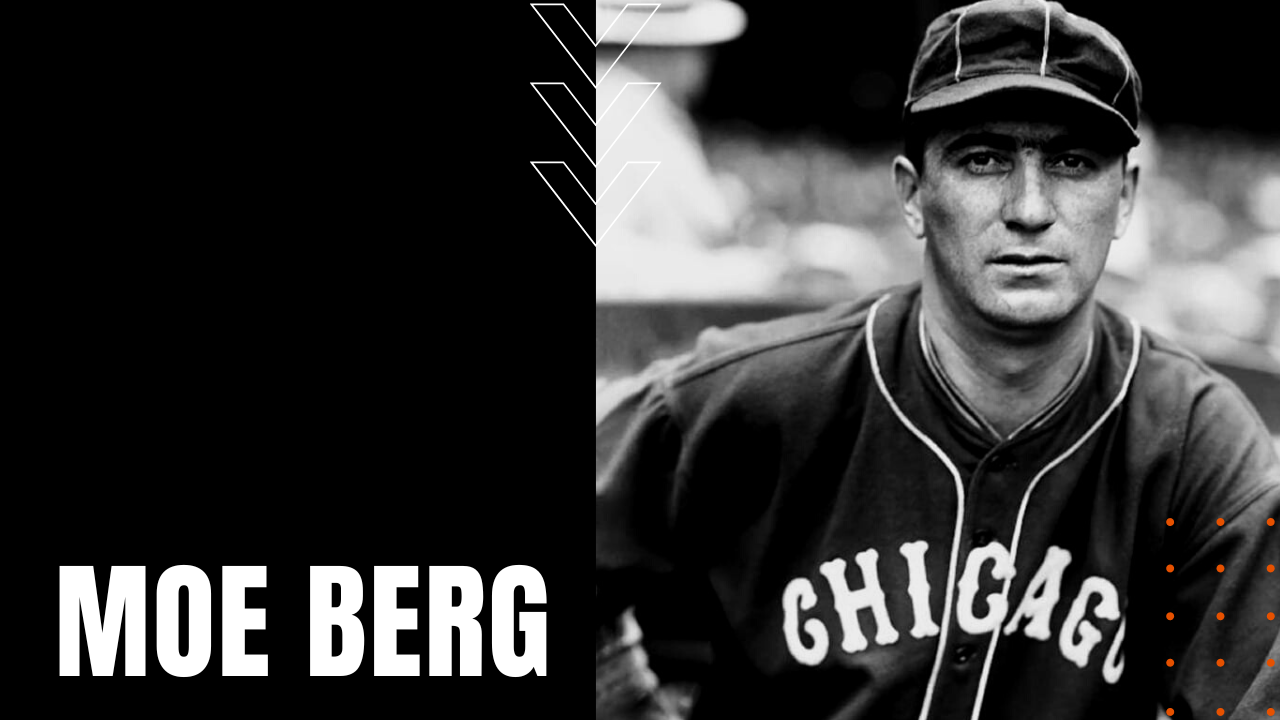Moe Berg: The Spy Behind Home Plate

Born into a Jewish immigrant family in 1902 Harlem New York, Morris “Moe” Berg excelled at both academics and baseball, first at NYU before matriculating to Princeton University, where he batted a respectable .337, while his batting average against archrivals Harvard and Yale soared to a dazzling .611.
Berg Strikes Out in Big Leagues
Graduating magna cum laude in 1923, Berg signed a $5,000 contract as a backup shortstop with the Brooklyn Robins—soon to be renamed the Brooklyn Dodgers—where one teammate recalled that “Berg could speak 12 languages, but he couldn’t hit in any of them.”
Exiled to the minor leagues after hitting a dismal .186 his first season with the pros, Berg spent the next two years developing as a player with the Minneapolis Millers, the Toledo Mud Hens and the Reading Keystones, earning his law degree from Columbia before signing with the Chicago White Sox from 1926 to 1930, the Cleveland Indians during the 1931 and 1934 seasons, the Washington Senators from 1932 to 1934 and later the Boston Red Sox from 1935 to 1939.
Moe Berg’s Espionage Career
During his time inside the beltway, Berg became a frequent guest at embassy cocktail parties, where his good looks, quick wit and prodigious language skills caught the attention of the incoming administration of Franklin D. Roosevelt.
While history has failed to reveal who officially put him on the roster, Berg was selected to join an all-star team bound for an 18-game goodwill exhibition trip to Japan, where he carried a letter signed by U.S. Secretary of State Cordell Hull, instructing the staff at the American consulate in Tokyo to give the catcher “all due cooperation, official and otherwise.”
He also carried a 16mm movie camera provided by Movietone News, who contracted with Berg to film his trip for moviegoers back home. During his downtime, Berg traded his baseball uniform for a kimono, and while the Japanese government strictly forbade photography of any kind by visiting foreigners, the six-foot-one baseball player slicked back his hair and boldly filmed much of Tokyo’s industrial and military infrastructure.
His endeavors in espionage provided footage that would later be viewed by U.S. Army Air Force Lieutenant Colonel Jimmy Doolittle and his raiders before their now famous 1942 bombing raid on Tokyo, making Moe Berg, both a mediocre journeyman baseball player, and an excellent pre-war spy.
